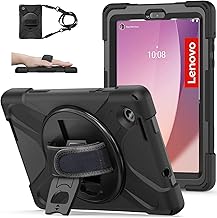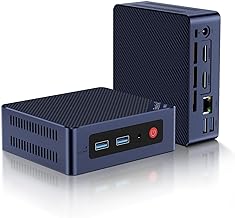When choosing a high-frequency antenna tuner for your ham radio, it can be overwhelming with so many options available. It’s important to focus on the key factors that will improve your radio communication experience, such as power handling and impedance matching. Understanding what separates a mediocre tuner from a great one is crucial in enhancing your amateur radio activities. To achieve clear transmissions and better signal quality, it’s not just about the fancy features but also about understanding the technical details that drive the tuner’s performance.
See our guide to the best hf antenna tuner for ham radio.
Compatibility with your radio and antenna
When choosing an HF antenna tuner for your ham radio, it’s important to make sure it works well with both your radio and antenna. Ignoring this can lead to poor performance and damage to your equipment. To get the best results, you should pick a tuner that can match the impedance of your radio and antenna effectively. This compatibility helps ensure smooth communication and makes your whole radio system work better. If you don’t do this, you might experience signal problems, low-quality transmission, and extra wear on your equipment. So, taking the time to find a tuner that matches your radio and antenna setup will improve your overall ham radio experience.
By focusing on compatibility when selecting an HF antenna tuner, you set the stage for a more reliable and efficient communication system. A well-matched tuner not only improves signal transmission but also protects your radio equipment from potential harm. Choosing a tuner that fits both your radio and antenna specifications is a smart move that leads to better performance and equipment longevity. When all the components work well together, communication flows smoothly, allowing you to enjoy amateur radio without the interruptions that can happen with mismatched setups. Ultimately, compatibility between your radio and antenna is essential when picking an HF antenna tuner, ensuring a successful and enjoyable ham radio experience.
Power handling capabilities
When you’re looking to buy an HF antenna tuner for ham radio, it’s important to consider how much power it can handle. The tuner needs to be able to match different power levels to make sure your radio works well and doesn’t get damaged. Choosing a tuner with strong power handling capabilities will not only make your radio setup more efficient but also protect it from power surges or changes.
A good HF antenna tuner with excellent power handling capabilities gives amateur radio operators confidence and peace of mind. By picking a tuner that can handle different power levels, you’re setting yourself up for a smooth and uninterrupted experience. It’s smart to focus on power handling capabilities when selecting an HF antenna tuner because it shows that you care about durability, performance, and making a long-lasting investment in the world of ham radio.
Tuning range and resolution
When choosing a high-frequency antenna tuner for your ham radio, it’s important to consider the tuning range and resolution. A wide tuning range allows you to match different antennas on various frequency bands easily. This gives you the flexibility to use different antennas without struggling to find a good match. High resolution in the tuner means you can make precise adjustments for the best performance and transmission.
Having a good balance of tuning range and resolution in your antenna tuner can improve your signal quality and reception. Quickly and accurately tuning your antenna system can boost signal strength and clarity, reducing interference and noise for better communication. Investing in an hf antenna tuner with a wide tuning range and high resolution means you’ll have reliable performance and the tools needed to switch between frequency bands smoothly. By focusing on these important features, you can enhance your ham radio abilities and explore more opportunities in amateur radio communication.
Portability and ease of use
Choosing a portable and easy-to-use HF antenna tuner for your ham radio can make a big difference in your experience, whether you’re a seasoned operator or just starting out. A compact and lightweight tuner can make setting up your radio quick and simple, giving you the freedom to take your radio adventures outdoors with ease. Having intuitive controls and clear displays on the tuner can save you time adjusting your radio frequency, allowing you to focus on exploring the airwaves and connecting with other radio enthusiasts around the world.
Having a portable and user-friendly HF antenna tuner can improve your overall ham radio setup and make your broadcasting more versatile and adaptable. By choosing a tuner that is compact and easy to use, you can improve your transmission abilities and make your radio sessions more efficient. Whether you’re broadcasting from home or out in nature, a portable tuner that is user-friendly can help you adjust your signals quickly and accurately, making each radio interaction smoother and more satisfying.
Durability and reliability
When looking to buy an HF antenna tuner for your ham radio system, it’s important to think about how durable and reliable the tuner is. A high-quality tuner can help with smooth communication and last a long time, giving you peace of mind.
Durability is key when choosing an antenna tuner. A sturdy tuner made from strong materials can handle lots of use and different environments. This makes it a smart investment for serious ham radio fans.
Reliability is also really important when picking out an HF antenna tuner. A reliable tuner will work well every time, letting you adjust your radio signals accurately. This means you can try out different frequency bands and talk to other operators confidently, knowing your tuner will work like a charm.
By focusing on durability and reliability when buying an HF antenna tuner, you can have a flawless ham radio experience without any interruptions.
Conclusion
In conclusion, having a good HF antenna tuner for your ham radio is important for improving your radio communication. Tuning your antenna system properly helps you receive and send signals better, making communication clearer and more effective. Choosing a tuner that fits your needs and knowing how to match impedance can help you get the most out of your ham radio equipment. This will allow you to enjoy amateur radio with clear and precise communication.


